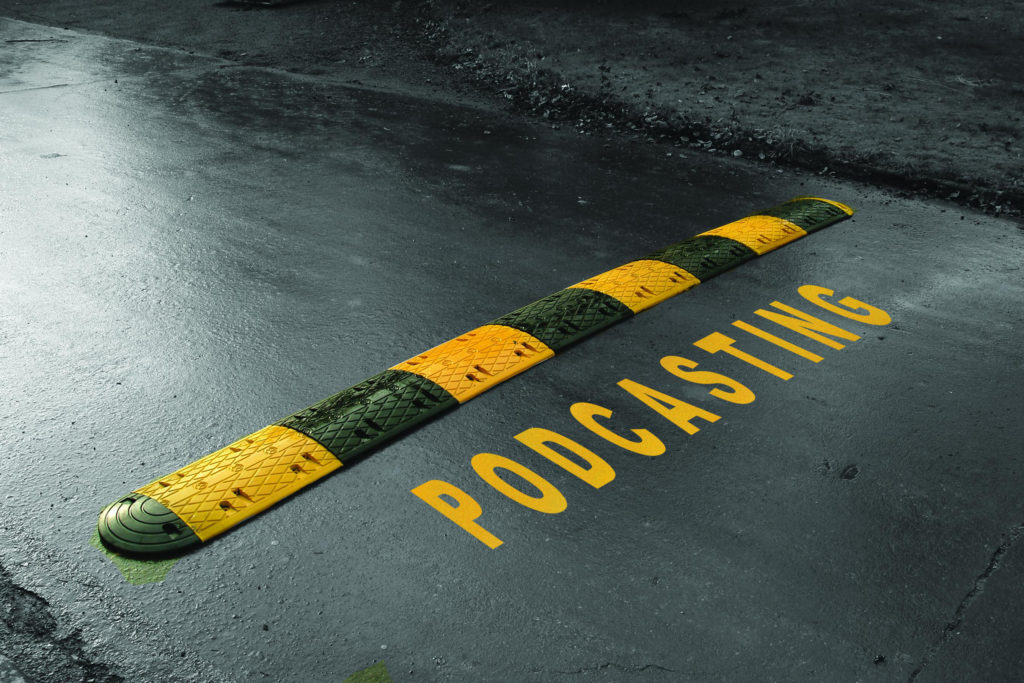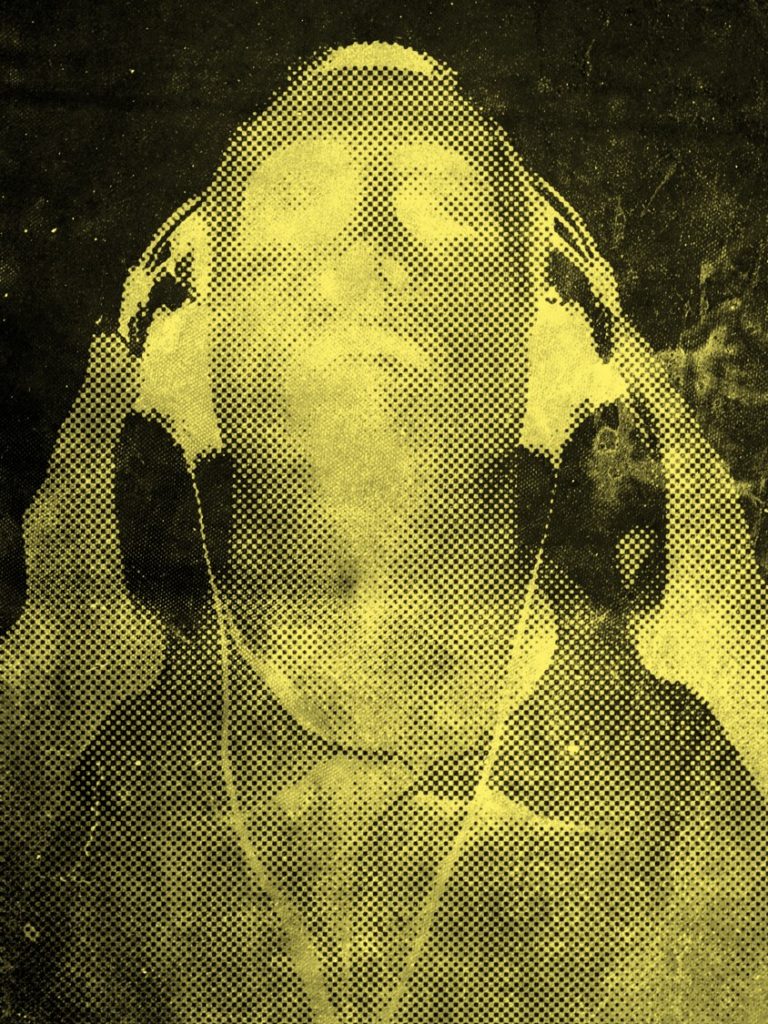
As we move into the MLB Playoffs, the much-feared S-word is on the minds of many players, coaches, managers, and of course, fans. After a great season where just a handful of teams will be playing baseball in October, there is that abject fear that all of a sudden, a star player will fall into a dreaded slump. Some of the best major leaguers ever – Barry Bonds, Clayton Kershaw, and Albert Pujols – have experienced prolonged slumps at the wrong time.
In baseball, slumps are crazy, unquantifiable phenomena. It’s generally not known how these reversal of fortunes start, how long they’ll last, and when and how they’ll end. But they are painful. And the longer they go on, it seems the harder it is for a player to overcome the mental anguish that accompanies these unanticipated downturns.
That’s why the last few weeks for podcasting are so curious, causing many to wonder whether the medium just hit a speed bump, or whether there’s something more significant going on. It came to a boil last week when the Columbia School of Journalism‘s Mathew Ingram wrote this provocative story:
“Is the podcasting bubble bursting?”
Ingram refers to a number of recent events we covered in this blog last week in our “Breaking Tech News” post we published last week.
There was Panoply‘s personnel pullback (owned by Slate), deciding to focus on podcasting distribution rather than their creation. Then, Audible (owned by Amazon) axed a number of key staffers from its podcast unit, including former NPR exec, Eric Nuzum. And finally, BuzzFeed, followed suit, shuttering their podcasting division.
These aren’t small entities nor are they insignificant events. In fact, each parent company has well-financed operations, supported by corporate dollars and a strong sense podcasting could be “the next big thing.”
Coming out of a highly successful Podcast Movement this summer, blossoming into a fertile “upfront” from the Interactive Advertising Bureau, these downsizing exercises seem counter-intuitive to the general belief that podcasting is about to explode in a good way – especially for radio. The IAB event drew a reported 300 participants, including high-profile execs that included Bob Pittman and Jarl Mohn.
So, what’s the problem with podcasting?
 Ingram says part of the issue is an overabundance of podcasting content, stretching the ability (and time restrictions) of fans to take them in. But that hasn’t stopped Netflix, Hulu, and Amazon – content-rich video streaming platforms that are having great success on the TV side of on-demand.
Ingram says part of the issue is an overabundance of podcasting content, stretching the ability (and time restrictions) of fans to take them in. But that hasn’t stopped Netflix, Hulu, and Amazon – content-rich video streaming platforms that are having great success on the TV side of on-demand.
And then there’s the data piece – the lack of granular metrics that track podcasting’s usage and strength. Downloads aren’t enough to truly float the financial boat, nor make media buyers satisfied they’re getting what they pay for.
There’s also a sense that with the glut of podcasts, their overall quality has suffered.
And to that, I’ll throw in a problem we’re seeing – would-be publishers are discovering that good podcasts are flat-out difficult to produce.
Many in radio are coming to that realization. Broadcasters can’t “mail in” podcasts like they often do commercial production. It is simply not possible to crank great podcasts out, unless we’re talking about re-purposing an already existing show.
great podcasts out, unless we’re talking about re-purposing an already existing show.
And finally, my time spent at Podcast Movement producing our “Broadcasters Meet Podcasters” track strongly suggests an obvious, but inconvenient truth:
Many radio broadcasters do not really understand the podcasting space, much less the mindset of those who produce them.
All these conditions conspire to make podcasting’s ascent arduous and problematic. It’s one thing to talk about “Serial” – it’s another to produce a podcast series that even approaches its quality or appeal.
Radio executives may be slowly coming to this same realization. Many are actively assessing how their companies are approaching podcasting initiatives, calculating how they can either produce competitive podcasts in-house or find a way to connect with existing producers who simply need more exposure.
And then there’s the monetization issue. Even for many who are producing podcasts that have established a respectable level of downloads, making money on them has become something of a Rubik’s cube.
Ingram draws an interesting, even hopeful conclusion about the current slump podcasting may be enduring:
“None of this is to say that podcasting is dead—just that, like anything else, it requires an investment of time and money to do well, something that not every media company has a lot of right now. Perhaps it always made more sense as a niche market for a passionate few rather than the next big solution to the media’s financial woes.”
So, is podcasting more of a nice business than a mass appeal enterprise? How much money can podcasting generate, and what kind of content needs to be produced that can unlock it?
In tomorrow’s post, we’ll examine a different model for podcasting – both for production and revenue generations – that’s taking place thousands of miles away. And you may be surprised to learn who’s successfully behind this effort.
Until then, have you listened to our podcast?
- What To Do If Your Radio Station Goes Through A Midlife Crisis - April 25, 2025
- A 2020 Lesson?It Could All Be Gone In A Flash - April 24, 2025
- How AI Can Give Radio Personalities More…PERSONALITY - April 23, 2025




Many podcasts are too long. Consider Dan Patrick’s :60 second daily feature, “Above the Noise.” It is, essentially, an over the air podcast. my best advice for podcasting is simple and direct: Expound upon one thought for one minute. Attention spans are too short for anything longer.
Bob, the driving question: “What is the ideal length for a podcast?” is one that comes up again and again. Tolerance varies by person and by situation. And then there’s the issue of quality. Thanks for reading our blog and for your comment.
It seems the available window in a listener’s day to spend time with a podcast is limited. Audiences are happy to binge on “The Marvelous Mrs. Maisel” but who’s going to sit and listen to even an hour of “How I Built This…”?
So the listening windows are primarily in-car, in gym or while doing mindless work (loading the dishwasher). WIth a static amount of time available and an ever expanding universe of podcast content, (not to mention the explosion of other time sucking media) something must give.
Speed bump? I’d prefer to call it an early shake out of a frothy business model.
Jackson, you may have it right. The one finite – a consumer’s time – is what’s in the crosshairs. And podcasts will have to earn their attention. Thanks for the comment.
“Many radio broadcasters do not really understand the podcasting space, much less the mindset of those who produce them.”
Well, if they’d stop and listen to people who actually know the space and know how to monetize a podcast, they – the radio broadcasters – would be the most profitable outfits in the industry. I’ve been podcasting since the very beginning and know how to make a radio company millions of dollars a year in podcasting. They don’t seem to want to “believe” the story – even if I have data to back up that claim.
Having worked in a Radio Broadcasting business for almost 2 years and attempting to up their podcast game, they decided podcasting wasn’t a priority despite having it already out there. I tried to do the same thing Jay’s talking about above and they were traditional radio people who really didn’t understand the space, nor did they want to.
Podcasting’s not in a slump but being utilized by many traditional radio companies that lack the experience that goes into the space.
“And then there’s the monetization issue. Even for many who are producing podcasts that have established a respectable level of downloads, making money on them has become something of a Rubik’s cube.”
Monetization even for a small podcast is possible and allows for great opportunities. Despite what they think, if they’re going at it from a radio perspective, it’s not the same. I make money on mine and they’re no where in the top lists of iTunes. The radio broadcasters do have a great opportunity to cash in but most of the time it’s their management unwilling to allow for the changes to take place.
Steven, similar to what I wrote Jay, I think we’re making progress, but it’s a process. And maybe a few broadcasters will have to learn the hard way. It’s a nascent space, it’s still early days, and the two sides should be working together. We’ll see how that works.
Jay, this is precisely why we’ve been bringing podcasters and broadcasters together the past three years at Podcast Movement. Each side needs to listen to the other. They can help each other, but it starts with understanding. Thanks for commenting.
I totally agree Fred!
I think every one just needs to calm down about podcasts. Concentrate on selling nights.
Best comment of all!! There was a time when a station could get a 40 share. Of course there were only 3 stations in town. Do I have to continue?
Well played.
Or sell that Sunday night talk show with that guy who talks about stuff.
I read that article the other day too. Figures, I just started podcasting. I spend my day in my home studio doing voice over and figured what the hey, I might as well give it a try. Nobody here in Austin will hire me for any radio gigs anyway! heh. So it gives me a creative outlet to shoot off my big mouth. But if I remember correctly, podcasting was a ‘big deal’ for a couple of years then fell off the radar for about 5 years and then came back again so I guess it’s inevitable for it to wane again. Media consumers attentions span is… “squirrel”
Julie on a mobile in Broward…